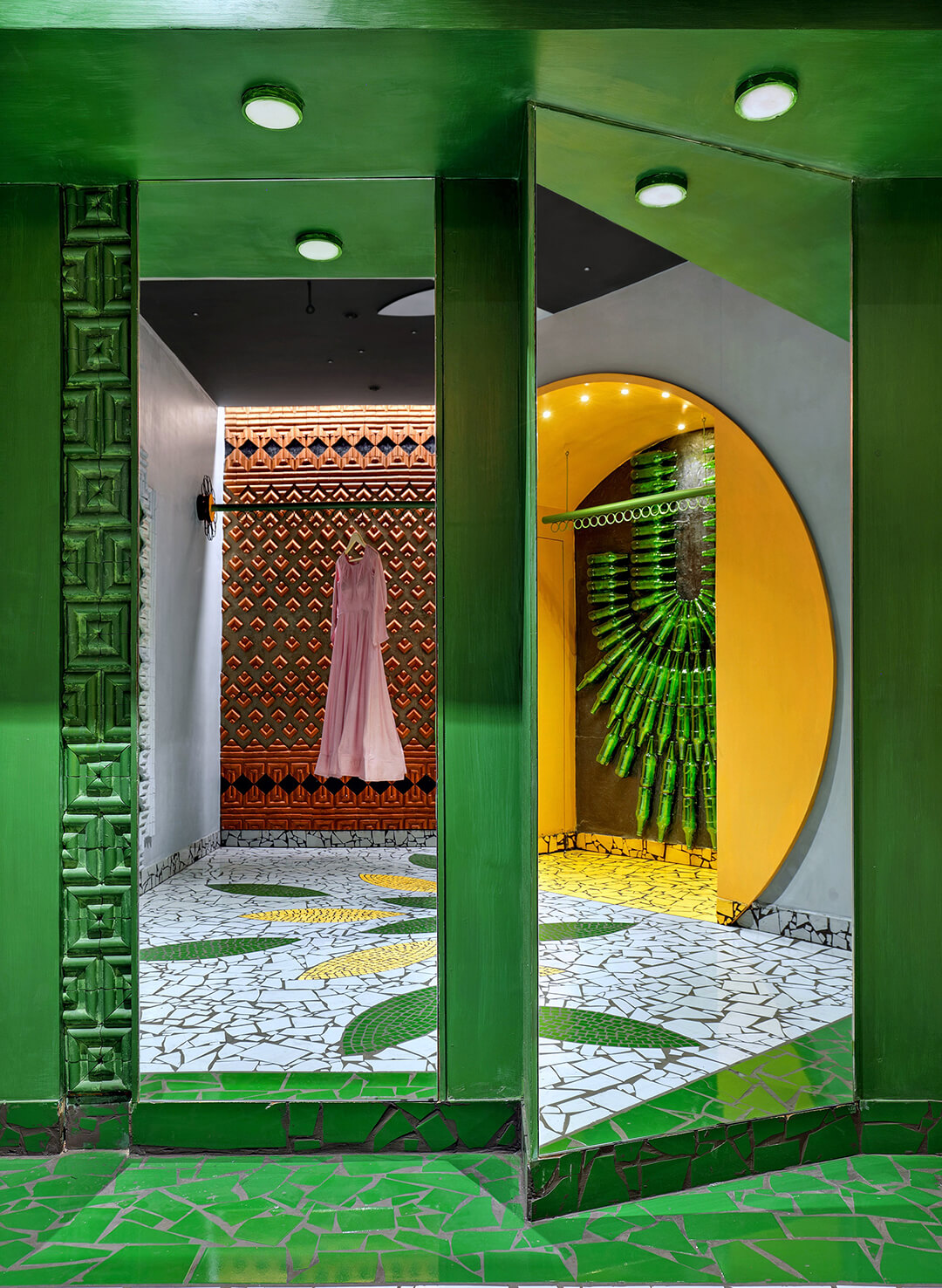Vadodara, India – Sustainable fashion is luckily gaining traction. With that, though, comes a call to action for retailers – if the clothes on offer are responsibly made, so must too be the spaces in which they are sold. Recycled materials have played a large part in the design of shops for the likes of Ace & Tate, Frietag and Ganni, for example. Manoj Patel Design Studio shows how far this circular-design thinking can go with their interior for Shefali’s Studio, a shop for custom-designed outfits in Vadodara.
Clay roof tiles, beer bottles, damaged flooring tiles, window shutters, unused sample tiles, metal rings and mirror cladding are among the waste and recycled materials that the design team used to reimagine the boutique. The elements were selected in a palette of contrasting tones, to give the store – which is divided into two rooms spanning 32.5 m2 – a graphic atmosphere.





Bright green – beer-bottle green, to be particular – reoccurs throughout the contrasting space. In one yellow-lit arched nook an installation crafted from bottles can be found. It is but one display of the craftsmanship in the shop: adjacent is a wall covered in waste clay tiles, arranged in an ornamental pattern referencing that of saree palav. This ornate Toran – the Hindu name for a sacred Buddhist archway in Indian architecture – creates a play of light in the area and parallels the other textures. Bold mosaic shapes in the flooring guide the guest to the central display area.
In spirit of the designers’ ethos for the project old seating was transformed using reclaimed fabrics provided by the fashion designer. Old table legs were used for door handles, and for affixing merchandising hangings forged from thin metal pipes. ‘[The palette] adds to the energy of the young boutique owner,’ says a spokesperson for the studio, ‘while celebrating the uniqueness of the particular space.’

